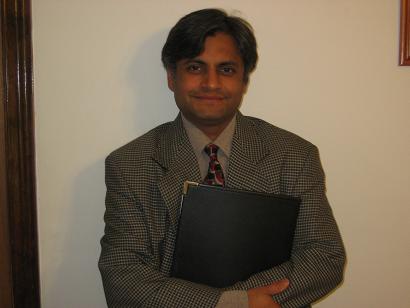Contribute
| Good Writing Is Key To Obtaining Positive Results In Business And Academics |
Darshan Thakkar
06/13/2007
In business, you write many kinds of communications—proposals, presentations, conference materials, advertising copies, marketing literature, business plans, brochures, media articles, website content, and technical or scientific reports.
For example, a good presentation must be organized and coherent. Often the difference between the successful presentation and the failed one is in the way it is structured and argued. Similarly, good sales and marketing literature must be persuasive and easily distinguished from your competitors. Additionally, a good website must be straightforward and integrate all the information to create a good impression on the visitor. No matter how brilliant your idea is, how clever your sales team is, or how colorful your website is—the writing in your presentation, marketing literature, and website must be clear, concise, coherent, and convey all the information necessary to generate a favorable response. The same is true for all types of business documents.
I routinely review business documents and provide services such as writing/rewriting content, correcting grammar/language mechanics, editing English usage, formatting to various style guides, and proofreading. In my more than ten years of professional writing experience, I have observed that the fastest way to lose credibility is by serving up poorly written communication—whether you are communicating with your employees or boss, customers or clients, public or media. Costs of writing/editing services are modest; costs of losing credibility are almost always exorbitant.
In academics, you write graduate thesis proposals, doctoral dissertations, research papers, essays, technical reports, college admission applications, and personal statements.
For example, a good thesis or dissertation must not only be clear and concise but it must meet the formatting and citation requirements of APA, MLA, Chicago Manual of Style, and others. An effective essay/research paper or technical report must be well organized, well argued and free of grammatical errors. A college application must cast you in the most favorable light and demonstrate how your accomplishments meet the admission board’s criteria. No matter how philosophical your thesis is, how thorough your research is, or how impressive your grade point average is—the writing in your thesis, research report, or college application essay must be grammatically and syntactically correct, and present you as a qualified candidate for admission.
I routinely review academic documents, especially technical papers, essays, college applications and personal statements. I edit them in a manner that preserves your writing style and personal characteristics—after all, the college is admitting you, not me. Most academic editing services protect the integrity of the students’ writing by providing as judicious editing as possible. I always remain true to academic integrity, whether I am editing college applications, essays, case studies, or any other academic documents.
An effective editor must perform certain tasks to be valuable. Whether I am editing business, academic, or any other kind of documents, I perform the following tasks:
• Correct and record omissions, errors, or inconsistencies found;
• Mark copy to indicate and correct errors in type, arrangement, grammar, punctuation, or spelling;
• Read corrected copies or proofs in order to ensure that all corrections have been made;
• Compare information or figures on one record against same data on other records, or with original copy, to detect errors;
• Consult reference books or secure aid of readers to check references with rules of grammar and composition;
• Route proofs with marked corrections to authors, editors, typists, or typesetters for correction and/or reprinting;
• Read proof sheets aloud, calling out punctuation marks and spelling unusual words and proper names.
Darshan Thakkar is a lawyer, journalist, and teacher. He has been editor-in-chief of a local newspaper for many years and is a member of South Asian Journalists Association. He is on the publications committee of Education Law Association. He has authored and published more than 60 articles, edited more than 250 articles and press releases, proofread several book manuscripts and screenplays, and many college applications (especially MBA) and conference booklets. He provides confidential, professional writing and editing services to businesses and academics all across the state. Darshan Thakkar lives in Burlington, MA, and can be reached at dthakkar@mac.com or (781) 789-5676.
You may also access this article through our web-site http://www.lokvani.com/
